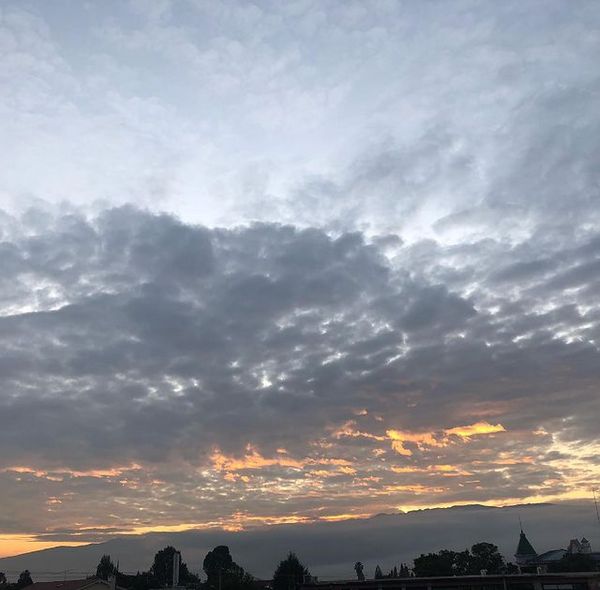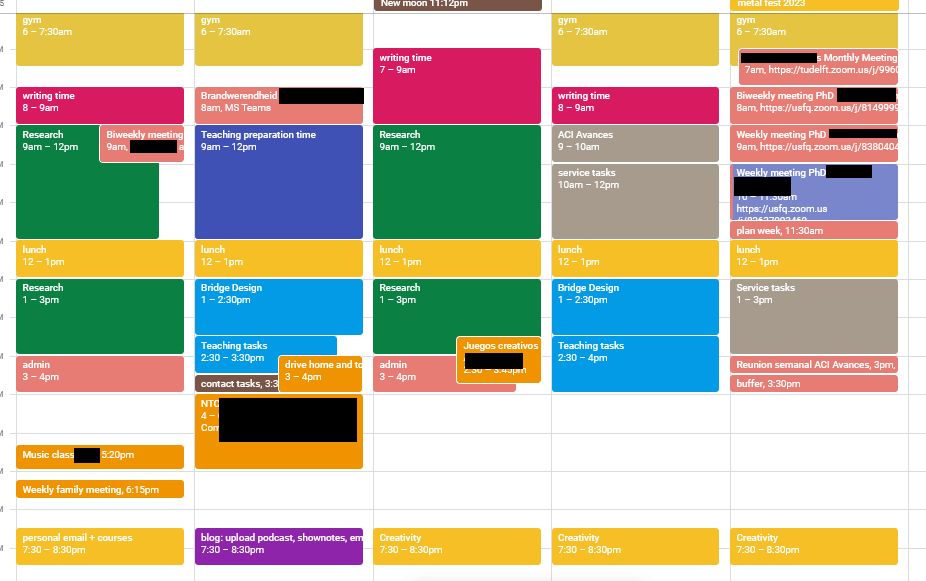
Ten things that have changed in my doctoral education since I got my PhD
Last June it has been ten years since I got my PhD, and in November it will be ten years since I started my faculty position at USFQ.
To honor this anniversary, I have prepared a series of posts to reflect on these last ten years.
First up is a post today and ten things that have changed in doctoral education (looking at TU Delft) since I got my PhD ten years ago from the same institution.
Without much further ado, here is the list of ten things that have changed in the doctoral trajectory in Delft since I got my PhD there ten years ago:
- Courseload: Around the time that I got my PhD in Delft, they started a doctoral education program. Students are now expected to take 15 credits in three categories (45 credits in total), to develop skills and technical contents during the PhD. For me, taking courses was optional and I only took Concrete Bridges from the MSc program, and I self-studied Fracture Mechanics from Mechanical Engineering. I also took a few courses that helped me develop my planning and organization skills during my PhD.
- Teaching responsibilities: During my PhD, I had some teaching responsibilities. I was the assistant for the case studies of prestressed concrete for three of the four years of my PhD (not in the last year as I was already scheduled for defense in the quarter in which the course took place), and I also once gave a lecture in the prestressed concrete course.
- Publication expectations: When I did my PhD, there was no expectation on me to write journal papers – it was considered as something to do after the PhD, with the PhD years as the necessary training years to learn how to do research and how to write technical English. I only started to prepare journal papers towards the very end of my PhD.
- Travel funding: While I was not expected to publish journal papers, I was allowed to travel to conferences, as long as I would be presenting a conference paper there. There seemed to be no limit to what was possible (in fact, I went to seven conferences in the last year of my PhD), whereas now we need to be thinking really about the funding of the project to see which trips we can take.
- PhD delays: When I did my PhD, almost everybody needed more than the four years, and it seemed to be easier to get extensions for the PhD. Of my cohort, I was the only one who finished on time (before the end of the four years), and everybody else easily got extensions. Now, we have to fight tooth and nail to get three months of extra because of the COVID-19-delays.
- Supervision style: During my PhD, supervision was less organized than it is now. Part of the current doctoral education plan is an annual review meeting, and supervisors are expected to meet their PhD candidates weekly or every other week. In my time, I would meet with my daily supervisor when I needed guidance (perhaps twice a month?) and I would talk to my promotor maybe three times per year.
- International supervision: Perhaps not so common in Delft yet, but more common at other universities is to have an international team of supervisors, with experts from other universities serving to cosupervise PhD candidates. I also currently cosupervise a few PhD candidates at other universities.
- Lab support: When I did my PhD, there were more technicians in the lab, so I could get help with a lot of the lab work, and certain tasks would be completely done for me (such as building setups and preparing measurements). Now, PhD candidates have less lab support because there are less people working in the lab, so they have to take on a larger chunk of manual labor.
- Collaboration between PhD candidates: During my PhD, each of us was working on our research in a rather isolated way. The lack of lab support has made that PhD candidates now have to band together to help eachother, and we see more collaboration of code, joint measurements, and joint research occurring.
- Relevant skills: Ten years ago, I measured everything with a handful of laser distance finders. My researchers now use many more measurement techniques, which also means that they need to learn how to use these techniques, and how they need to post-process the data. Programming for processing data was already super important for me, but now the post-processing has become even more complex and researchers need to learn these skills.
All in all, I do worry that the expectations on PhD candidates have increased: they now have to take courses, do more without lab support, learn complex techniques to apply in their research, and publish – while at the same time do the same amount of research but without getting extensions. I don’t think this work load inflation on PhD candidates is good for anybody, and I hope that we can return to realistic expectations for PhD candidates (and all academics, really).
What are the expectations in your doctoral program? How have these changed over time?



